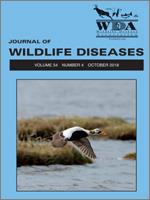Chagas disease, a vector-borne parasitic infection caused by Trypanosoma cruzi, represents a significant source of morbidity and mortality in the Americas. Mammalian reservoir species play a large role in propagating the sylvatic transmission cycle of this disease, and this cycle can spill over, resulting in human infections. Our understanding of the wildlife species implicated in propagating this transmission cycle is incomplete. We investigated white-tailed deer (Odocoileus virginianus) as a potential novel reservoir for this parasite. Only one of the 314 hunter-harvested deer hearts collected across Texas, was PCR-positive (0.3%) for T. cruzi. This finding has potential implications for deer hunters, because it indicates that there might be a risk of blood-borne transmission during the field-dressing process. Hunters should be strongly encouraged to wear gloves and other personal protective equipment when handling carcasses to prevent exposure to infected blood.
How to translate text using browser tools
1 October 2018
Identification of White-tailed Deer (Odocoileus virginianus) as a Novel Reservoir Species for Trypanosoma cruzi in Texas, USA
Sarah M. Gunter,
Connor Cordray,
Rodion Gorchakov,
Ina Du,
Bob Dittmar,
Eric L. Brown,
Kristy O. Murray,
Melissa S. Nolan

Journal of Wildlife Diseases
Vol. 54 • No. 4
October 2018
Vol. 54 • No. 4
October 2018
Chagas disease
reservoir species
Trypanosoma cruzi
white-tailed deer
zoonosis




